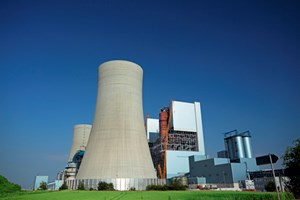TEPCO to select water treatment proposals for radioactive water
(UI) – TEPCO, the company that owns the Fukushima Daiichi nuclear power plant, announced the different technological proposals that are going to be analyzed for the management of the more than 1.3 million m3 of water contaminated with tritium that have been stored for later discharge into the sea.

The water to be treated comes from the ALPS (Advanced Liquid Processing System). This system removes the main radioactive isotopes present in the radioactive water, with the exception of tritium, which is again stored in tanks.
The different water treatment proposals presented respond to the international appeal that TEPCO made in May of 2021, when they requested alternative solutions to separate tritium from water, as none of the previously tested processes obtained satisfactory results.
Of the 131 proposals submitted by engineering companies from around the world, only seven have been selected. Among them, the one carried out by a Spanish cluster formed, among others, by Nucleantech, a company of the Condorchem Enviro Solutions Group, stands out.
Condorchem Enviro Solutions is an engineering company specialized in water and wastewater management processes, which has already participated in radioactive effluent treatment projects for Orano, KEPCO Nuclear Fuel, James Fisher Nuclear, and even at the Chernobyl nuclear power plant facilities.
The solution proposed by Condorchem Enviro Solutions, which has been tested with the collaboration of the nuclear industry, allows the separation of tritium from water. This solution, which is being developed, offers the first promising results for the treatment of tritium present in radioactive effluents from PWR reactors.
TEPCO’s objective is to find a solution to solve the environmental problem of water with tritium. This problem is exacerbated daily with an average increase of 200 tons of radioactive water coming from the damaged reactors after the tsunami.
Currently, the nuclear power plant has more than 96% of available water storage capacity, corresponding to 1.32 million tons of stored water. The proposed solutions could prevent the discharge into the sea of these radioactive water.
Related News
From Archive

- Glenfarne Alaska LNG targets late-2026 construction start for 807-mile pipeline project
- U.S. water reuse boom to fuel $47 billion in infrastructure spending through 2035
- $2.3 billion approved to construct 236-mile Texas-to-Gulf gas pipeline
- Major water pipe break in Puerto Rico hits over 165,000 customers
- Potomac River Tunnel project enters construction phase beneath Washington, D.C.
- Pennsylvania American Water launches interactive map to identify, replace lead water service lines
- Trump's tariffs drive $33 million cost increase for Cincinnati sewer project
- Utah city launches historic $70 million tunnel project using box jacking under active rail line
- Tulsa residents warned after sewer lines damaged by boring work
- Fatal trench collapse halts sewer construction in Massachusetts; two workers hospitalized



Comments